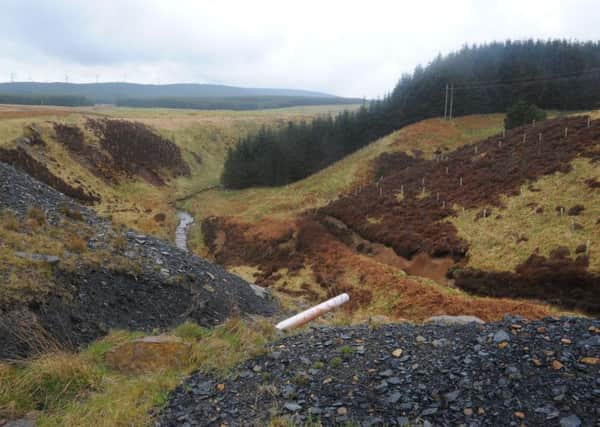Human sewage sludge plan for Dalquhandy opencast site


However, Hargreaves has been quick to assure inhabitants of the surrounding villages that there will be practically no threat to human health from the use of sewage sludge on the site to encourage plant growth on the barren landscape west of Coalburn.
The firm further claims that any smell from the site during the speading of the sludge will be kept to an absolute minimum and should be very temporary.
Advertisement
Hide AdAdvertisement
Hide AdKeen to reassure local residents of the safety of its plans, Hargreaves held a public consulation meeting at Coalburn Miners’ Welfare Club last Thursday evening, distributing documents outlining the fertilising plan for the site and defending the use of human waste as part of it.
Company representatives were also there to answer any questions from villagers.
Residents will have until Friday, July 7, to submit any comments on the scheme to Hargreaves, and the company is expected to make a planning application to South Lanarkshire Council to carry out the works shortly afterwards.
Despite the repeated re-assurances issued by Hargreaves, some residents were still expressing concerns on social media this week about the use of human sewage on the site, parts of which are only yards away from homes in Coalburn.
Advertisement
Hide AdAdvertisement
Hide AdThe company states that the use of human waste is not only safe but essential if the Dalquhandy site, formerly the biggest opencast mine in western Europe, is ever to become anything more than a wilderness.
The company briefing document states: “Plants tend not to grow well because the rocks, stones, sand and clay present have been compacted by heavy machinery traffic and there are few plant nutrients and little organic matter on the site.”
The document goes on to say the sewerage sludge is “essential for healthy soil and it can provide a kick-start to create functional topsoil.”
The company goes on to point out that the sludge, if not used on sites like Dalquhandy, would have to go into landfill tips, and that practice is about to be banned by the Scottish Government.
Advertisement
Hide AdAdvertisement
Hide AdThe firm also indicates that the Dalquhandy restoration might not take place at all if it not for the use of the waste, saying itis “cost-effective and could make the difference between it being possible to restore a site and not”.
An assurance has been issued that the spreading of the waste will be independently scientifically monitored and the operation will be “strictly controlled” by the Scottish Environmental Protection Agency.
The company added that “modern land restoration practices ensure safe beneficial outcomes” and states: “The risks associated with using organic wastes in today’s tightly-regulated land restoration industry are very small and the benefits greatly outweigh them.”
The company document concludes: “Risks to the public and animals are virtually nil.”
Residents still concerned will have a further chance to object to the scheme once Hargreaves submits a planning application to the council.